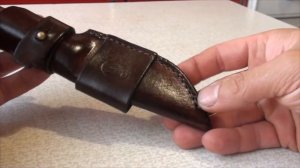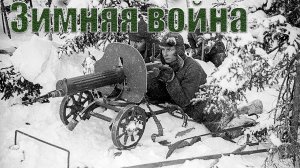
 4:13
4:13
2024-05-02 07:36

 3:30
3:30

 3:30
3:30
2024-04-15 17:03

 3:36
3:36

 3:36
3:36
2024-01-21 06:51

 3:37
3:37

 3:37
3:37
2025-05-26 17:37

 6:59
6:59

 6:59
6:59
2024-11-27 14:56

 4:22
4:22

 4:22
4:22
2023-12-05 19:08

 1:12
1:12

 1:12
1:12
2024-04-20 11:24

 21:60
21:60

 21:60
21:60
2024-03-21 11:54

 2:04
2:04

 2:04
2:04
2023-12-20 13:02

 1:29:27
1:29:27

 1:29:27
1:29:27
2025-09-10 19:00

 1:51:43
1:51:43

 1:51:43
1:51:43
2025-09-16 11:29
![База «Горные ключи»: сохранить или ликвидировать?]() 3:27
3:27
 3:27
3:27
2020-12-22 06:51

 4:55
4:55

 4:55
4:55
2023-08-21 16:58
![Assassin's Creed 3 - Прохождение игры на русском [#20] | PC (2014 г.)](https://pic.rutubelist.ru/video/a4/9d/a49d3287fd7f32988dc959ad690a494e.jpg?width=300)
 34:25
34:25
![Assassin's Creed 3 - Прохождение игры на русском [#20] | PC (2014 г.)](https://pic.rutubelist.ru/video/a4/9d/a49d3287fd7f32988dc959ad690a494e.jpg?width=300)
 34:25
34:25
2023-04-30 20:41

 6:39
6:39

 6:39
6:39
2020-04-14 11:13

 4:44
4:44

 4:44
4:44
2023-10-31 14:48

 1:13
1:13

 1:13
1:13
2023-11-18 15:59

 1:49
1:49
![Tural Everest, Руслан Добрый - Красивая (Премьера клипа 2025)]() 3:16
3:16
![Маша Шейх - Будь человеком (Премьера клипа 2025)]() 2:41
2:41
![Маракеш, Сергей Наговицын - До свидания, кореша (Премьера клипа 2025)]() 3:20
3:20
![Зульфия Чотчаева - Холодное сердце (Премьера клипа 2025)]() 2:52
2:52
![Шавкат Зулфикор & Нурзида Исаева - Одамнинг ёмони ёмон буларкан (Премьера клипа 2025)]() 8:21
8:21
![Карина Салагати - Сердце горца (Премьера клипа 2025)]() 3:18
3:18
![KhaliF - Я розы тебе принес (Премьера клипа 2025)]() 2:06
2:06
![ARTIX - На небе луна (Премьера клипа 2025)]() 2:59
2:59
![Фрося - На столике (Премьера клипа 2025)]() 1:42
1:42
![Джатдай - Тобою пленен (Премьера клипа 2025)]() 1:59
1:59
![Джамила Икромова - Ошики пушаймонас (Премьера клипа 2025)]() 3:40
3:40
![Соня Белькевич, Олег Семенов - Увы, мадам (Премьера 2025)]() 3:33
3:33
![Бекзод Хаккиев - Айтаман (Премьера клипа 2025)]() 2:41
2:41
![Отабек Муминов - Кетябсан (Премьера клипа 2025)]() 3:17
3:17
![Вусал Мирзаев - Слов не надо (Премьера клипа 2025)]() 2:19
2:19
![АКУЛИЧ - Красные глаза (Премьера клипа 2025)]() 2:13
2:13
![Бекзод Хаккиев - Нолалар (Премьера клипа 2025)]() 4:07
4:07
![Кравц - Пусть музыка играет (Премьера клипа 2025)]() 3:01
3:01
![Абрикоса, GOSHU - Удали из памяти (Премьера клипа 2025)]() 4:59
4:59
![Zhamil Turan - Губки не целованы (Премьера клипа 2025)]() 2:37
2:37
![Только ты | All of You (2025)]() 1:38:22
1:38:22
![Кей-поп-охотницы на демонов | KPop Demon Hunters (2025)]() 1:39:41
1:39:41
![Однажды в Ирландии | The Guard (2011) (Гоблин)]() 1:32:16
1:32:16
![Орудия | Weapons (2025)]() 2:08:34
2:08:34
![Большой куш / Спи#дили | Snatch (2000) (Гоблин)]() 1:42:50
1:42:50
![Терминатор 2: Судный день | Terminator 2: Judgment Day (1991) (Гоблин)]() 2:36:13
2:36:13
![Рука, качающая колыбель | The Hand That Rocks the Cradle (2025)]() 1:44:57
1:44:57
![Тот самый | Him (2025)]() 1:36:20
1:36:20
![Плохой Cанта 2 | Bad Santa 2 (2016) (Гоблин)]() 1:28:32
1:28:32
![Кровавый четверг | Thursday (1998) (Гоблин)]() 1:27:51
1:27:51
![Трон: Арес | Tron: Ares (2025)]() 1:52:27
1:52:27
![Баллада о маленьком игроке | Ballad of a Small Player (2025)]() 1:42:60
1:42:60
![Девушка из каюты №10 | The Woman in Cabin 10 (2025)]() 1:35:11
1:35:11
![Французский любовник | French Lover (2025)]() 2:02:20
2:02:20
![Чумовая пятница 2 | Freakier Friday (2025)]() 1:50:38
1:50:38
![Школьный автобус | The Lost Bus (2025)]() 2:09:55
2:09:55
![Стив | Steve (2025)]() 1:33:34
1:33:34
![Святые из Бундока | The Boondock Saints (1999) (Гоблин)]() 1:48:30
1:48:30
![Все дьяволы здесь | All the Devils are Here (2025)]() 1:31:39
1:31:39
![Плохой Санта 2 | Bad Santa 2 (2016) (Гоблин)]() 1:34:55
1:34:55
![Новогодние мультики – Союзмультфильм]() 7:04
7:04
![Рэй и пожарный патруль Сезон 1]() 13:27
13:27
![Енотки]() 7:04
7:04
![Зомби Дамб]() 5:14
5:14
![Сборники «Ну, погоди!»]() 1:10:01
1:10:01
![Пиратская школа]() 11:06
11:06
![Команда Дино. Исследователи Сезон 1]() 13:10
13:10
![Пип и Альба. Приключения в Соленой Бухте! Сезон 1]() 11:02
11:02
![Папа Супергерой Сезон 1]() 4:28
4:28
![Корги по имени Моко. Защитники планеты]() 4:33
4:33
![Роботы-пожарные]() 12:31
12:31
![Пластилинки]() 25:31
25:31
![Истории Баданаму Сезон 1]() 10:02
10:02
![Врумиз. 1 сезон]() 13:10
13:10
![Сборники «Оранжевая корова»]() 1:05:15
1:05:15
![Тайны Медовой долины]() 7:01
7:01
![Монсики]() 6:30
6:30
![Пип и Альба Сезон 1]() 11:02
11:02
![Простоквашино]() 6:48
6:48
![Тёплая анимация | Новая авторская анимация Союзмультфильма]() 10:46
10:46

 1:49
1:49Скачать Видео с Рутуба / RuTube
| 426x240 | ||
| 640x360 | ||
| 854x480 | ||
| 1280x720 |
 3:16
3:16
2025-11-12 12:12
 2:41
2:41
2025-11-12 12:48
 3:20
3:20
2025-11-11 00:28
 2:52
2:52
2025-11-18 11:48
 8:21
8:21
2025-11-17 14:27
 3:18
3:18
2025-11-19 11:48
 2:06
2:06
2025-11-11 18:00
 2:59
2:59
2025-11-18 12:12
 1:42
1:42
2025-11-12 12:55
 1:59
1:59
2025-11-15 12:25
 3:40
3:40
2025-11-10 14:12
 3:33
3:33
2025-11-07 15:10
 2:41
2:41
2025-11-17 14:22
 3:17
3:17
2025-11-15 12:47
 2:19
2:19
2025-11-07 14:25
 2:13
2:13
2025-11-15 12:35
 4:07
4:07
2025-11-11 17:31
 3:01
3:01
2025-11-07 14:41
 4:59
4:59
2025-11-15 12:21
 2:37
2:37
2025-11-13 11:00
0/0
 1:38:22
1:38:22
2025-10-01 12:16
 1:39:41
1:39:41
2025-10-29 16:30
 1:32:16
1:32:16
2025-09-23 22:53
 2:08:34
2:08:34
2025-09-24 22:05
 1:42:50
1:42:50
2025-09-23 22:53
 2:36:13
2:36:13
2025-10-07 09:27
 1:44:57
1:44:57
2025-10-29 16:30
 1:36:20
1:36:20
2025-10-09 20:02
 1:28:32
1:28:32
2025-10-07 09:27
 1:27:51
1:27:51
2025-09-23 22:52
 1:52:27
1:52:27
2025-11-06 18:12
 1:42:60
1:42:60
2025-10-31 10:53
 1:35:11
1:35:11
2025-10-13 12:06
 2:02:20
2:02:20
2025-10-01 12:06
 1:50:38
1:50:38
2025-10-16 16:08
 2:09:55
2:09:55
2025-10-05 00:32
 1:33:34
1:33:34
2025-10-08 12:27
 1:48:30
1:48:30
2025-09-23 22:53
 1:31:39
1:31:39
2025-10-02 20:46
 1:34:55
1:34:55
2025-09-23 22:53
0/0
 7:04
7:04
2023-07-25 00:09
2021-09-22 23:51
 7:04
7:04
2022-03-29 18:22
 5:14
5:14
2024-11-28 13:12
 1:10:01
1:10:01
2025-07-25 20:16
 11:06
11:06
2022-04-01 15:56
2021-09-22 22:45
2021-09-22 23:36
2021-09-22 21:52
 4:33
4:33
2024-12-17 16:56
2021-09-23 00:12
 25:31
25:31
2022-04-01 14:30
2021-09-22 21:29
2021-09-24 16:00
 1:05:15
1:05:15
2025-09-30 13:45
 7:01
7:01
2022-03-30 17:25
 6:30
6:30
2022-03-29 19:16
2021-09-22 23:37
 6:48
6:48
2025-10-17 10:00
 10:46
10:46
2022-06-07 11:02
0/0

